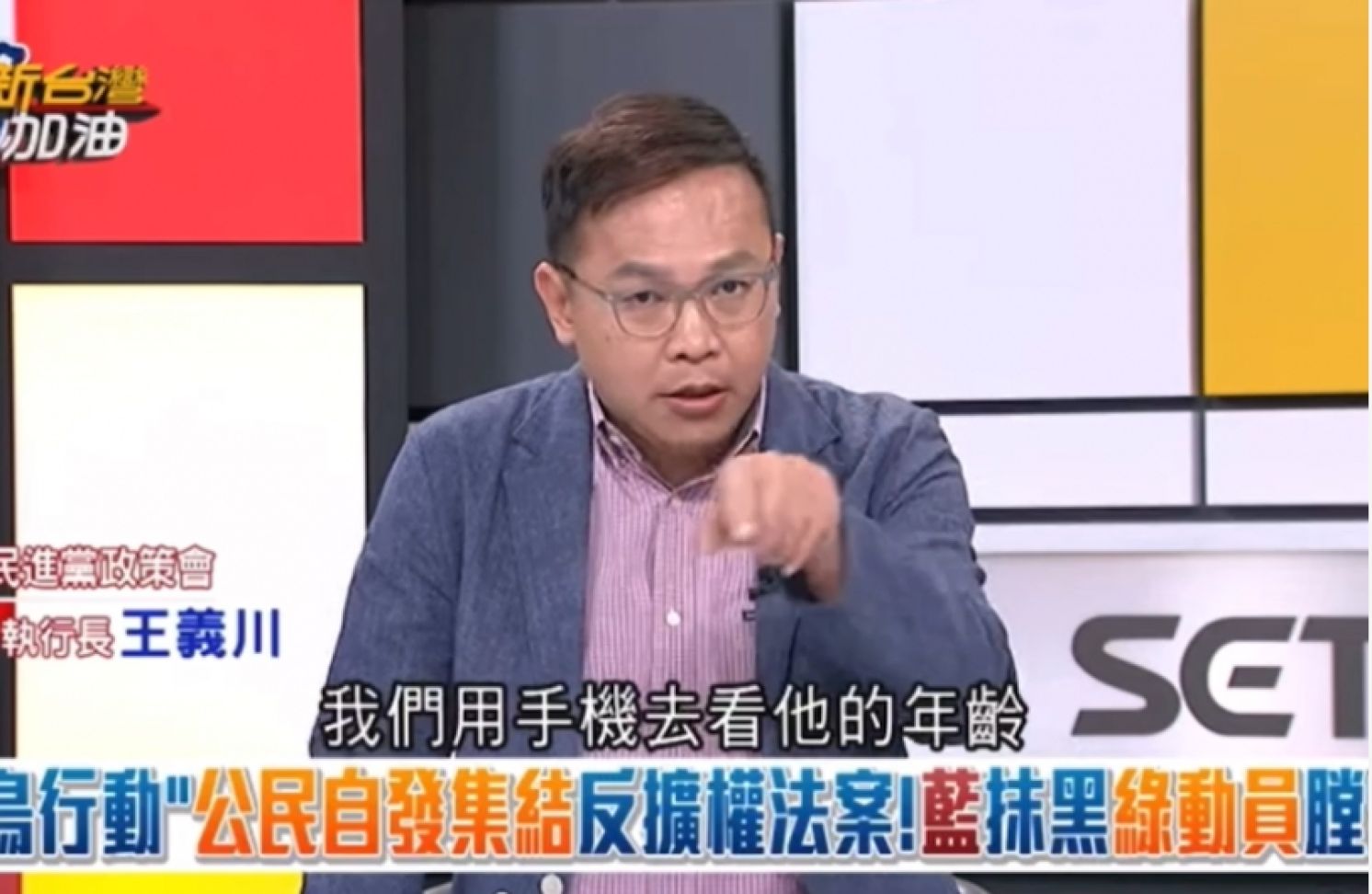
DPP Suspected of Using Telecom Signals to Track Protesters, Prosecutors Launch Investigation
Summary Report by Taiwan Weekly
Wang Yi-chuan, policy director of the ruling Democratic Progressive Party (DPP), publicly stated on a political talk show that they analyzed cell tower signals to determine the composition of the crowd protesting outside the Legislative Yuan, comparing them with participants in other civic movements to see if they overlap. The opposition accused the DPP of using state apparatus to infringe on people's privacy, like a "Big Brother watching everyone." The Taipei District Prosecutors Office has commenced an investigation.
Several scholars have raised concerns that if the DPP can use telecommunication data to identify the movements of event participants, the information obtained could include ID numbers, phone numbers, and other personal data, raising issues of privacy infringement.
To clarify Wang’s statement, he mentioned on May 27 during a political talk show that they used cell tower signal positioning to compare recent protests outside the Legislative Yuan, including the Bluebird Movement and the May 19 rally organized by the Taiwan People's Party (TPP) demanding that President Lai Ching-te fulfill reform promises. They then compared these signals with those from the DPP's presidential election campaign events.
Wang stated, "Some are from the Sunflower Movement (2013 student movement), making up 60 percent of the entire event. We used mobile phones to analyze their age groups, and roughly 60 percent are below 70 years old. Those under 20 years old constitute about 12 percent, so approximately 72 percent are under 70." He added, "We compared the signals with those from the May 17 (misspoken, should be May 19th) gathering under the DPP headquarters and found that they were different people. This group also didn't overlap with those present at the January 13th presidential election eve rally." When the host asked if it is now possible to compare such data, Wang confirmed that it could be done by matching up base station signals.
Wang's comments caused an uproar in public opinion. The opposition parties accused the DPP of monitoring the people's every move, stating that the DPP's "big data analysis" not only tracks crowd flow but also compares age, gender, and political inclination. They questioned, "Is Big Brother still watching?" and demanded President Lai and national security agencies clarify whether activities were used as a pretext to collect personal data and monitor citizens' actions.
Spokesman Cho Kuan-ting of the DPP explained that analyzing crowd characteristics through mobile phone signals is a fundamental method for conducting event research in the current commercial market. In the past, events such as the New Taipei City Christmasland, Taiwan Lantern Festival, origin-destination surveys for transportation, and tourist source analyses in scenic spots were all conducted using mobile signal data for big data analysis. He urged against making unfounded speculations.
However, representatives from the telecommunications industry pointed out that telecom companies do indeed offer a service called "crowd analysis." Typically, the purchasers of this service are either government tourism departments, tourist area operators, or event companies. Prior to providing crowd analysis, data undergoes cleansing and anonymization processes, ensuring that the identity of the phone number's owner remains unknown and no detailed personal information is recorded. The fact that Wang was able to obtain this data is highly irregular.
The Taiwan Association for Human Rights stated that location data constitutes personal privacy. Wang Yi-chuan's reference to location data analysis involves the use of personal data beyond its intended purpose. They demanded that the National Communications Commission (NCC) and telecom companies clarify the legal basis for such data usage and review whether consumer rights regarding informed consent and the right to opt out have been upheld.
The three major telecom companies quickly distanced themselves from the controversy, issuing statements asserting that they had "not collaborated with Wang Yichuan nor provided any data." During legislative inquiries, relevant departments also denied involvement. Director-General Tsai Ming-yen of the National Security Bureau (NSB) stated that government agencies must follow stringent procedures to request user data from telecom companies and that the NSB had not participated in this instance. Director-General Chang Jung-hsin of the National Police Agency, Ministry of the Interior, added that the police do not use mobile phone tracking to maintain crowd order and that he was unaware of which entities could access such data.
After stirring controversy, Wang has refrained from further discussing the issue. The DPP has shifted its stance, stating that Wang referenced various publicly available data analyses and research studies for his media commentary, and that no personal data was involved.
The Taipei District Prosecutors Office has proactively launched an investigation to determine whether there were violations of the Communication Security and Surveillance Act or the Personal Data Protection Act. The NCC has also issued notices to the three telecom companies to initiate an administrative investigation. The Legislative Yuan's Transportation Committee has scheduled a special report and inquiry session for the NCC and related agencies to address Wang’s statements.
Several opposition legislators have expressed their intention to use the recently amended Acts Governing Exercise of Rights of the Legislative Yuan to exercise their parliamentary investigative rights once it becomes effective. They plan to propose the formation of an investigative committee to clarify the truth. The controversy surrounding Wang may well become the first case investigated by the Legislative Yuan under its new powers.